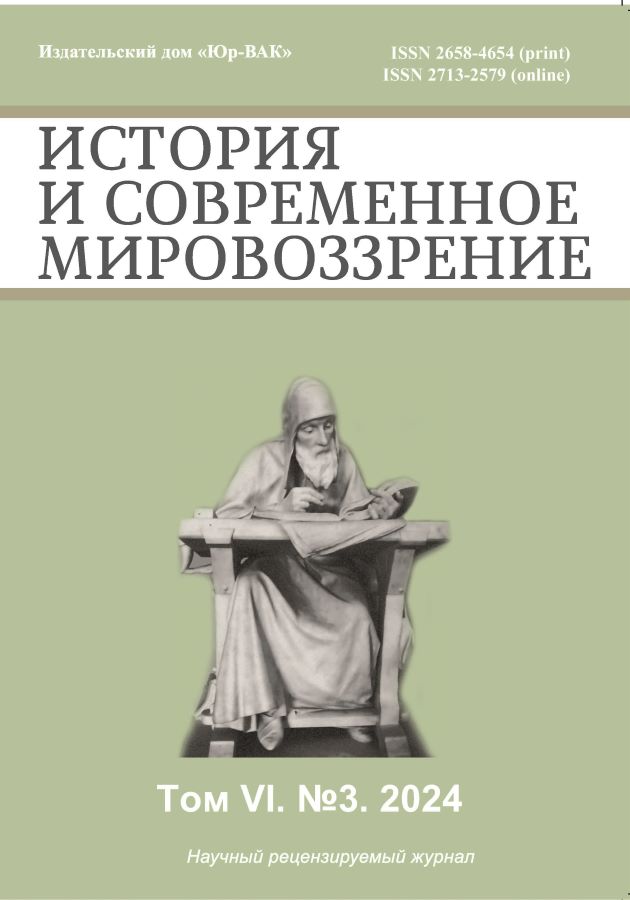Formation of a mechanism for ensuring the viability of the territory at the initial stage of socialist construction in Ural (1921–1923)
- Authors: Bersenev V.L.1
-
Affiliations:
- Institute of Economics of the Ural Branch of the Russian Academy of Sciences
- Issue: Vol 6, No 3 (2024)
- Pages: 80-87
- Section: ECONOMIC HISTORY
- URL: https://journals.eco-vector.com/2658-4654/article/view/646663
- DOI: https://doi.org/10.33693/2658-4654-2024-6-3-80-87
- EDN: https://elibrary.ru/LTFFVY
- ID: 646663
Cite item
Abstract
One of the purposes of historical economics is to illustrate economic theory. At present, within the framework of the regional economy, the concept of territorial resilience is being developed. This article illustrates the process of formation of a new post-revolutionary economic mechanism, in particular, the establishment of work on monitoring and planning the economy of the Urals in the first years after the end of the Civil War. The specifics of the activities of the Yekaterinburg Provincial Council of National Economy and the Yekaterinburg Provincial Economic Conference, as well as the Ural Regional Economic Council, in the context of the transition to the new economic policy are noted. It is concluded that, despite the lack of experience, the economic management bodies of the province were able to ensure the viability of the territory and contributed to the formation of a single industrial complex of the Urals.
Keywords
Full Text
About the authors
Vladimir L. Bersenev
Institute of Economics of the Ural Branch of the Russian Academy of Sciences
Author for correspondence.
Email: colbers@bk.ru
ORCID iD: 0000-0002-3554-6965
Dr. Sci. (Hist.), Professor, Leading Researcher
Russian Federation, YekaterinburgReferences
- Akberdina V.V. Resilience Factors in the Russian Economy: The Comparative Analysis for 2000–2020. // National Interests: Priorities and Security, 2021, vol. 17, iss. 8, pp. 1412–1432.
- Volchik V.V. To the Issue of the Theory and Methodology of narrative Economics // Issues of economic Theory. 2022. № 3. P. 31–46.
- Granberg A.G. Fundamentals of Regional Economics: A Textbook for Higher Educational Institutions. 3rd ed. Moscow, 2003. 495 p.
- Klimanov V., Kazakova S., Mikhailova A. Regional Resilience: theoretical foundations of the question // Economic Policy. 2018. Vol.13, № 6. P. 164–187.
- Nikulkina I.V., Gordyachkova O.V., Kalavriy T.Yu., Vanderlinden J.-P. Socio-economic systems resilience: methodological aspect // Russian Journal of Innovation Economics. 2022. Vol.12, № 1. P. 659–668.
- Romanova O.A., Sirotin D.V., Ponomareva A.O. From Resistance Economy to Resilient Economy (the Case of an Industrial Region in Russia) // AlterEconomics. 2022. Vol.19, № 4. P. 620–637.
- Smorodinskaya N.V., Katukov D.D. Resilience of economic Systems in the Age of Globalization and sudden Shocks // The Bulltin of the Institute of Economics of Russian Academy of Sciences. 2021. № 5. P. 93–115.
- Formation of the framework of economic security in the aspect of ensuring the sustainable development of the region / Ed. by V.P. Chichkanov, A.A. Kuklin. — Yekaterinburg: Institute of Economics of Ural’s Branch of Russian Academy of Sciences, 2017. 431 p.
- North D. Institutions and Economic Growth: An Historical Introduction // World Development. 1989. Vol.17, № 9. P.1319–1332.
- OECD. Guidelines for resilience systems analysis. How to analyze risk and build a roadmap to resilience. OECD Publishing, 2014. 37 p.
- Zhikharevich B.S., Klimanov V.V., Maracha V.G. Resilience of a Territory: Concept, Measurement, Governance // Regional Research of Russia. 2021. № 11. P. 1–8.
Supplementary files









